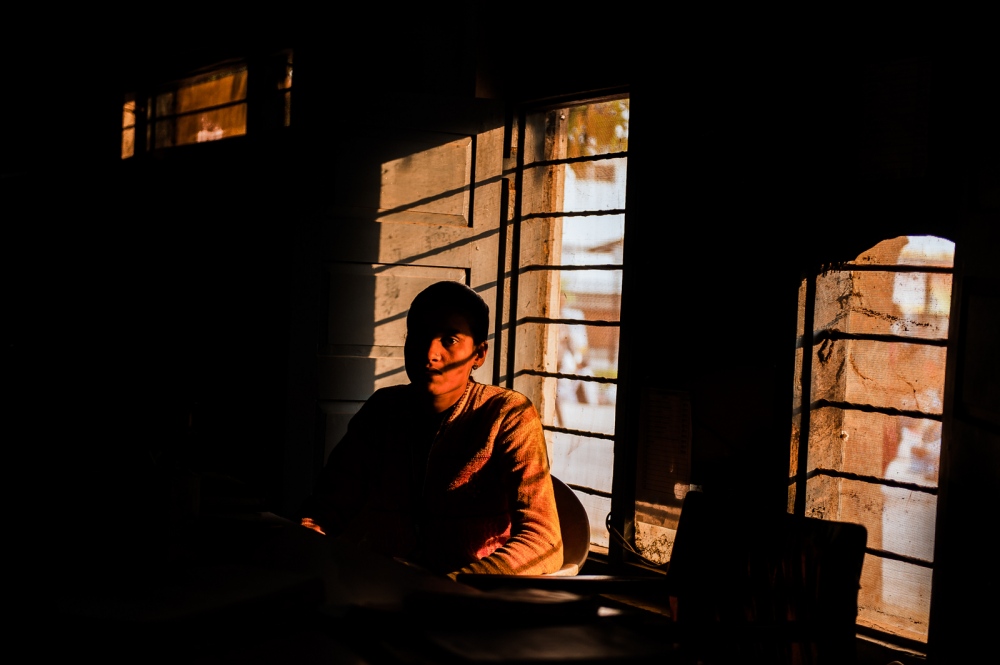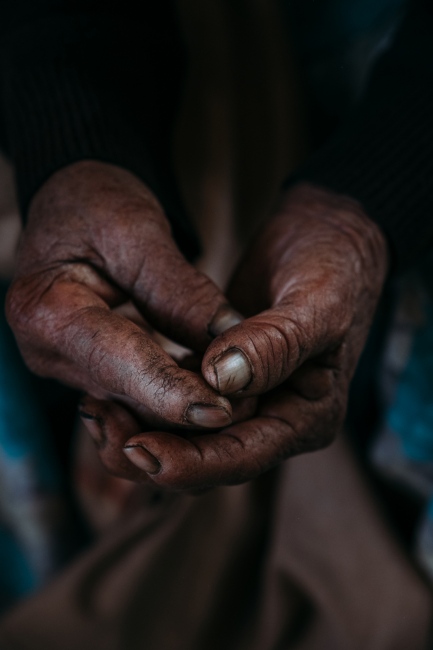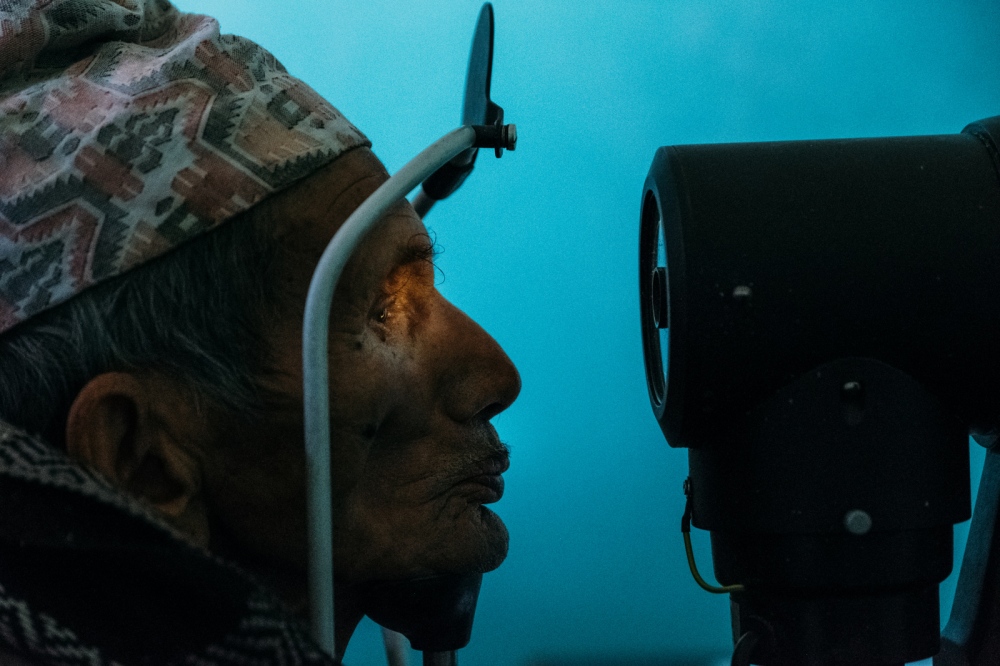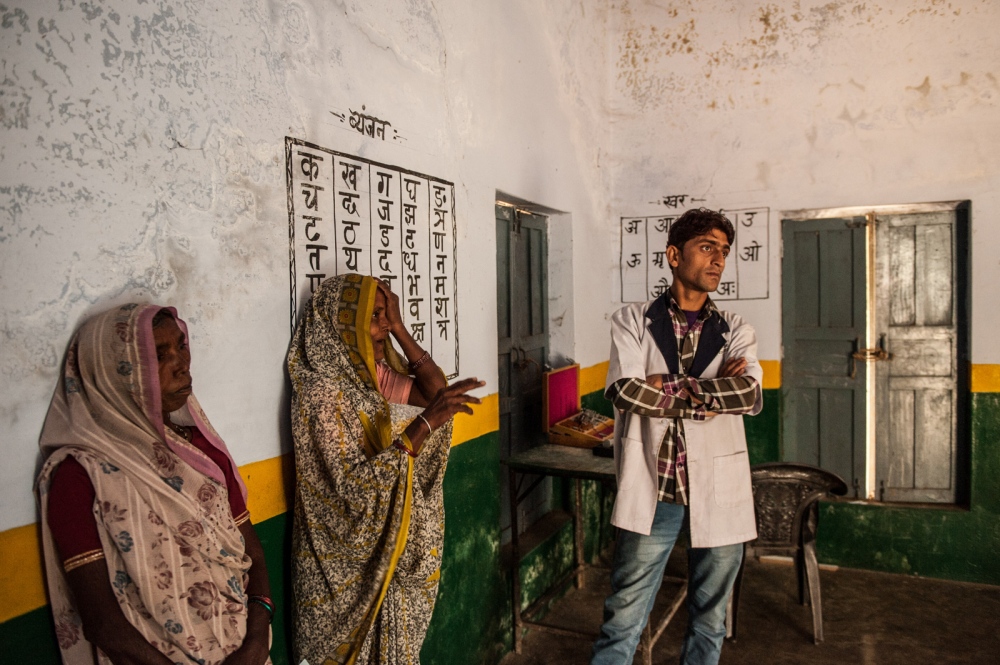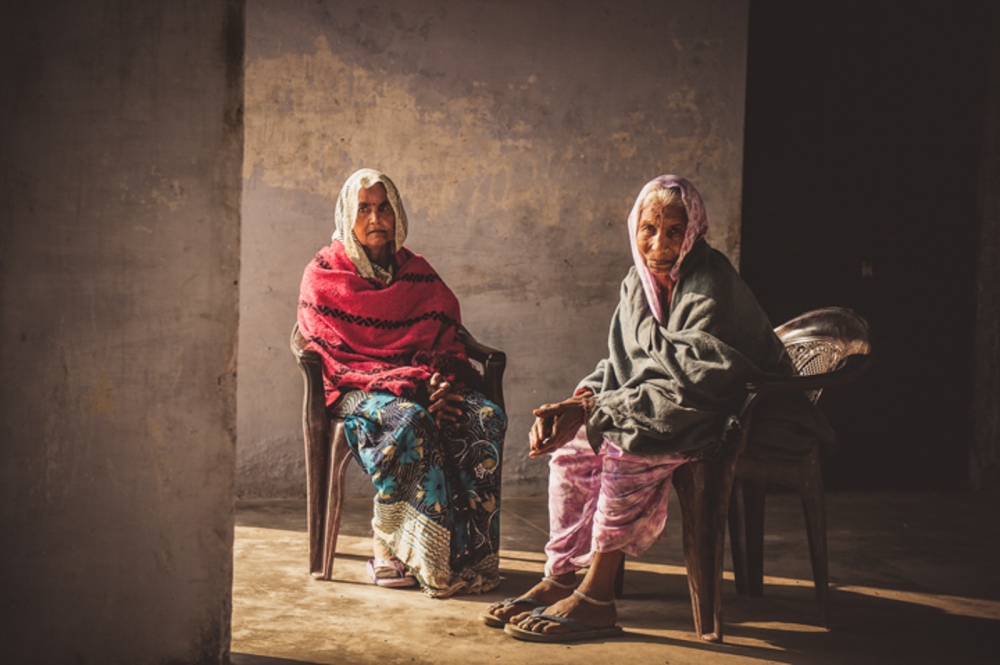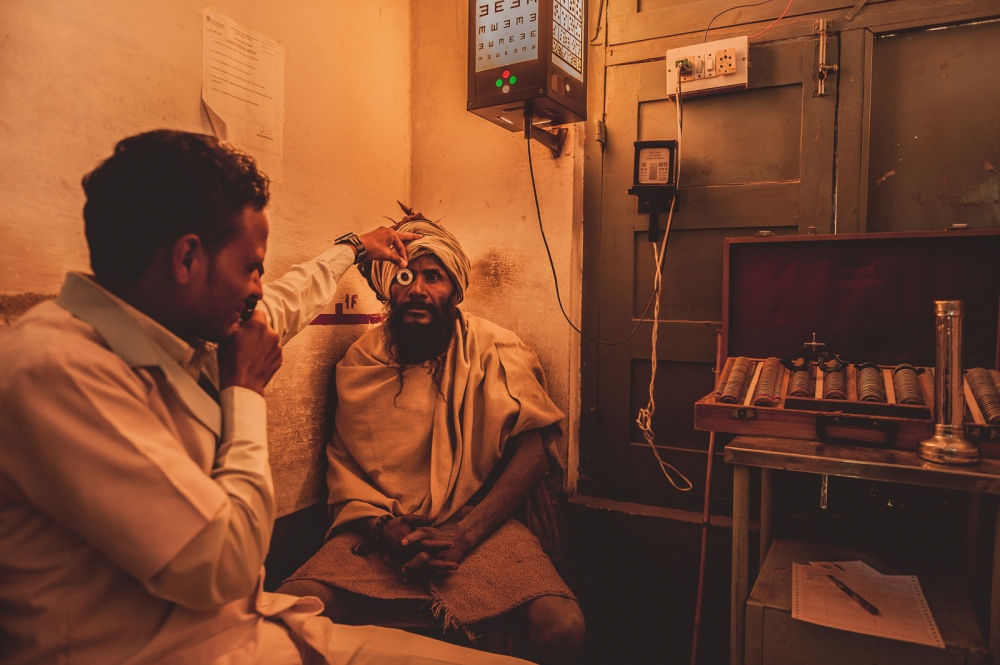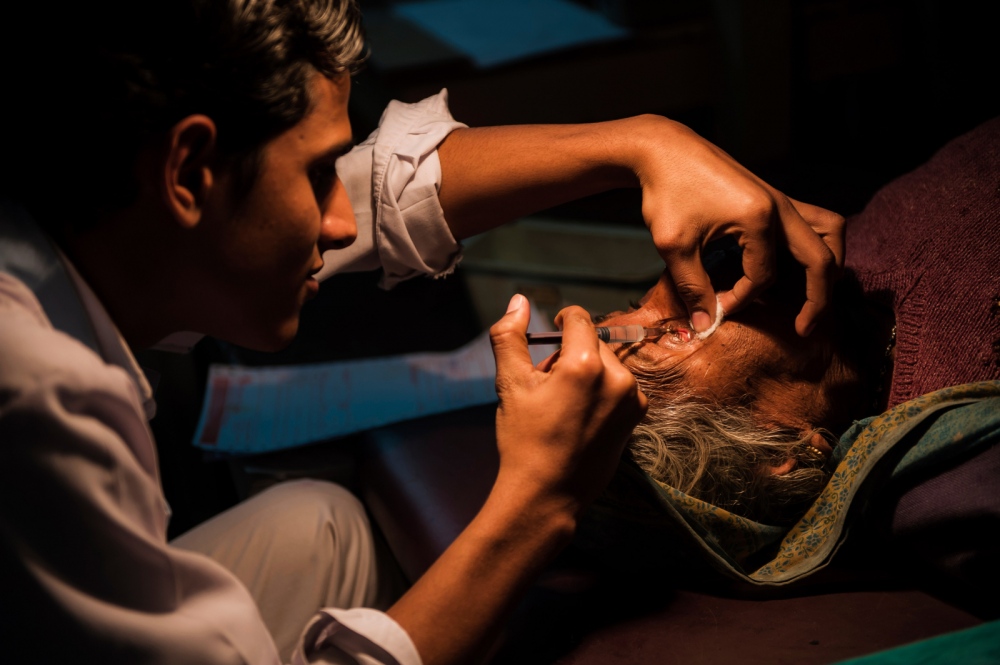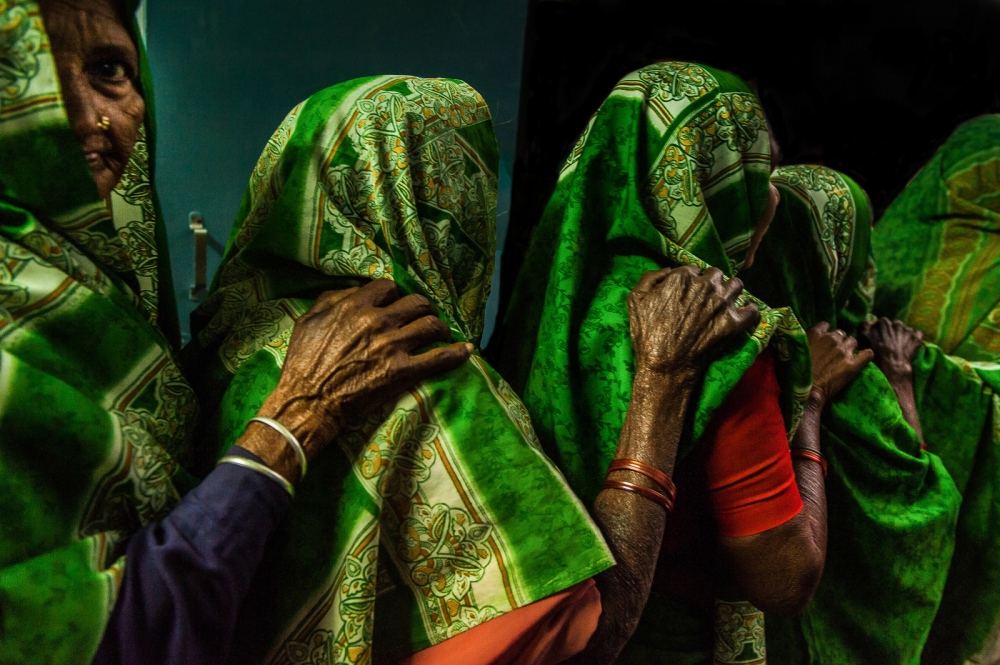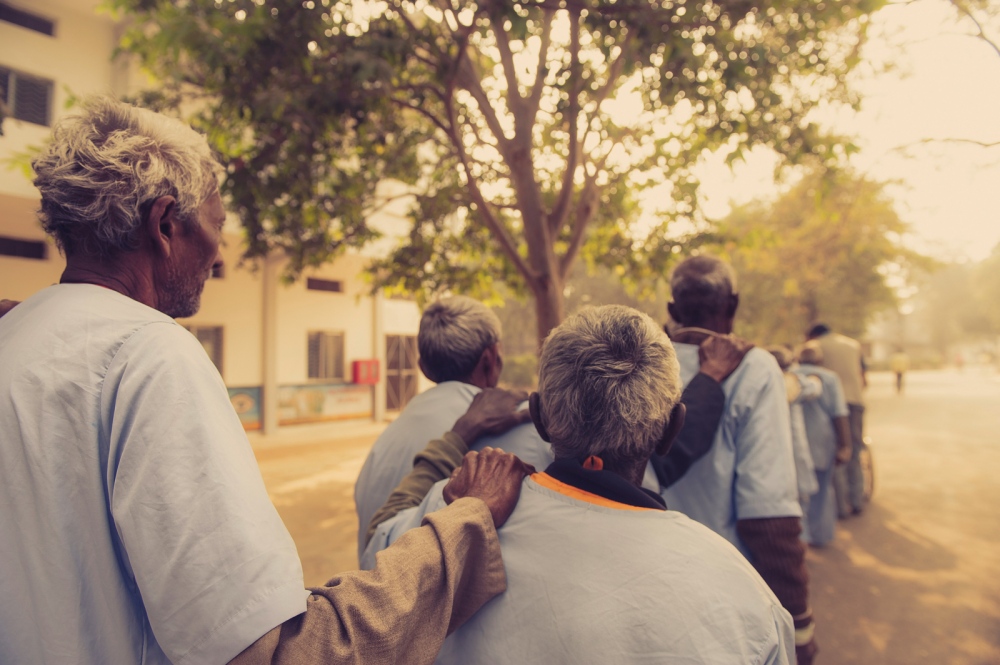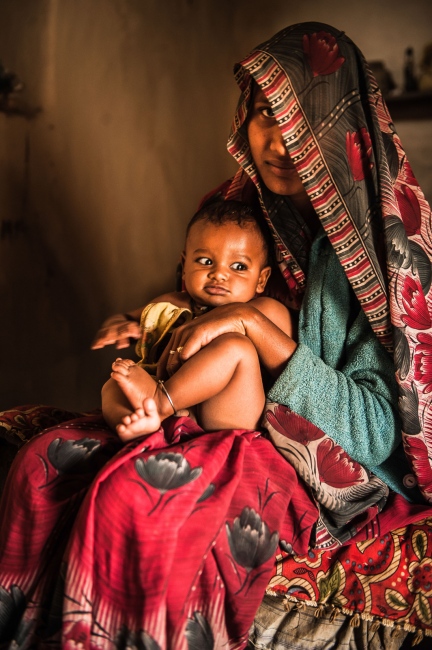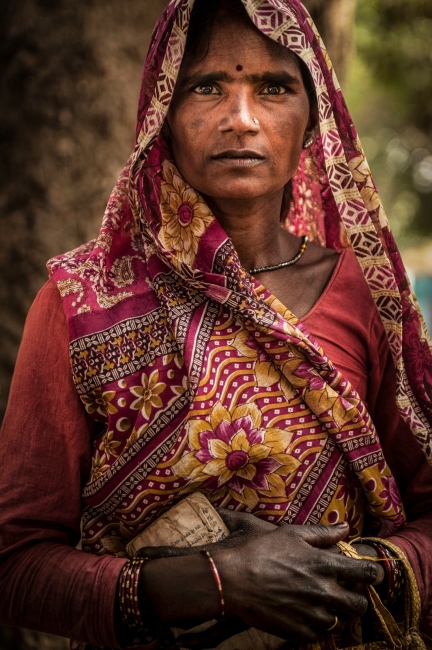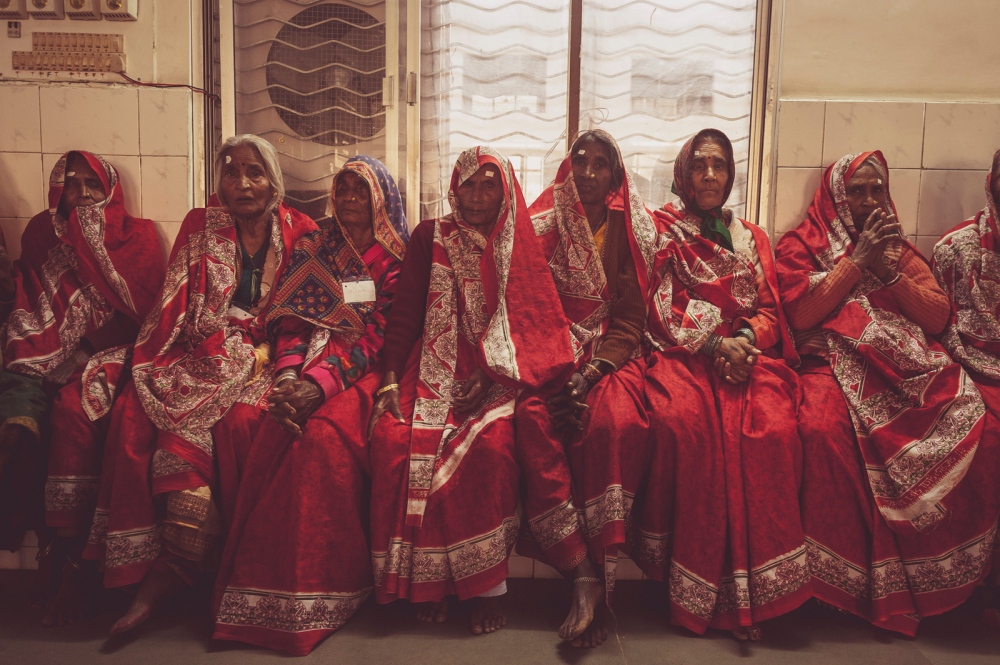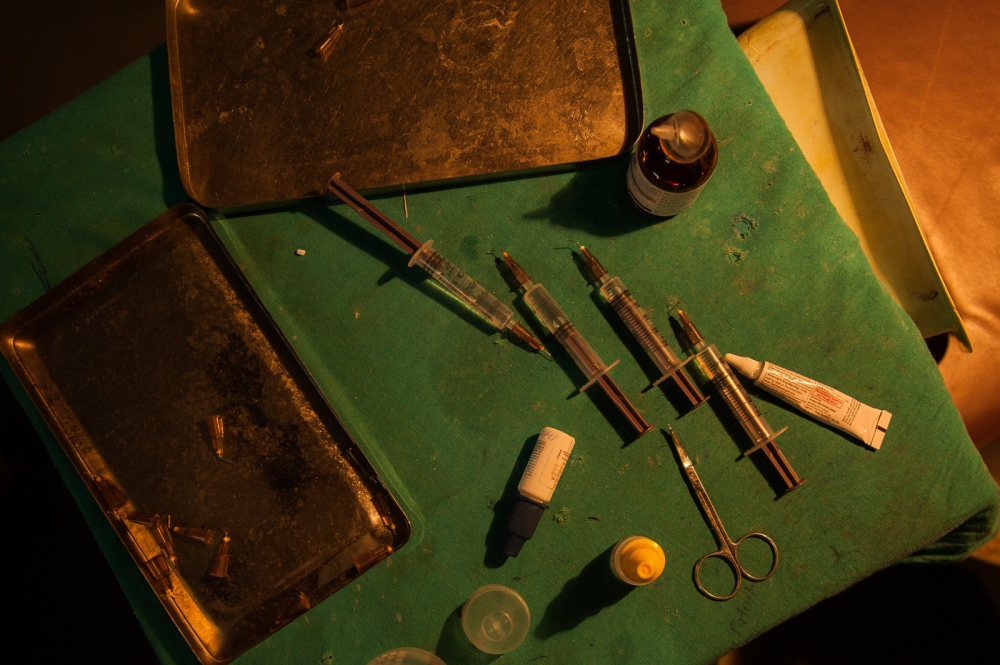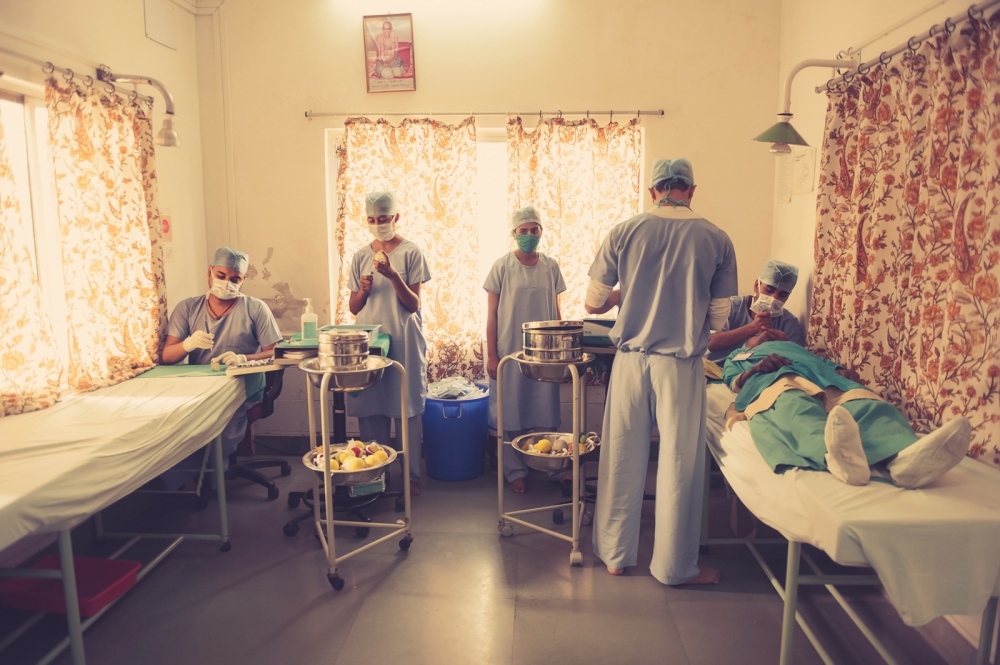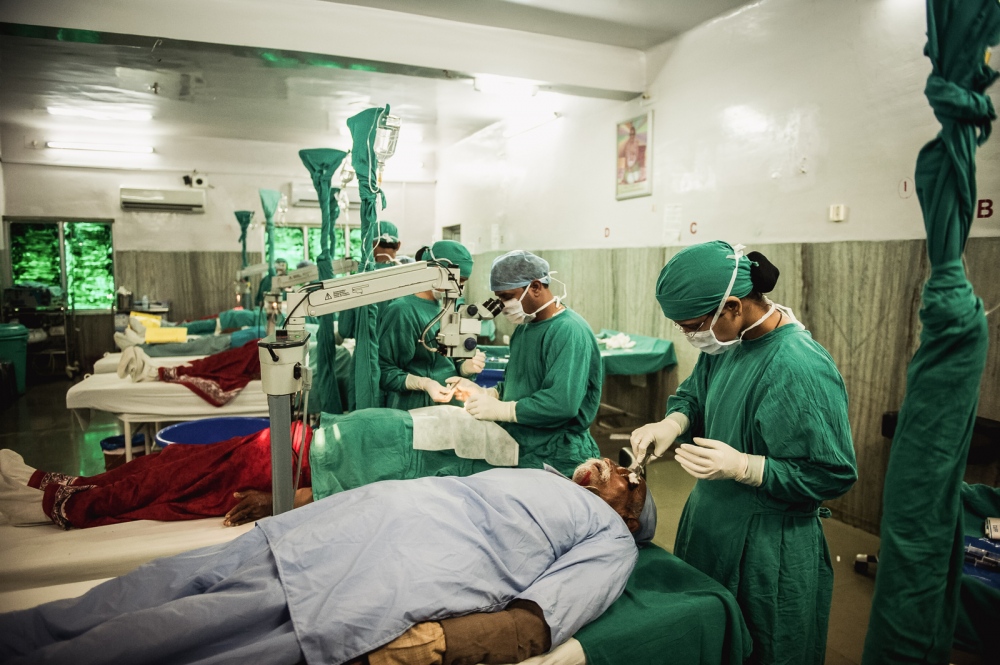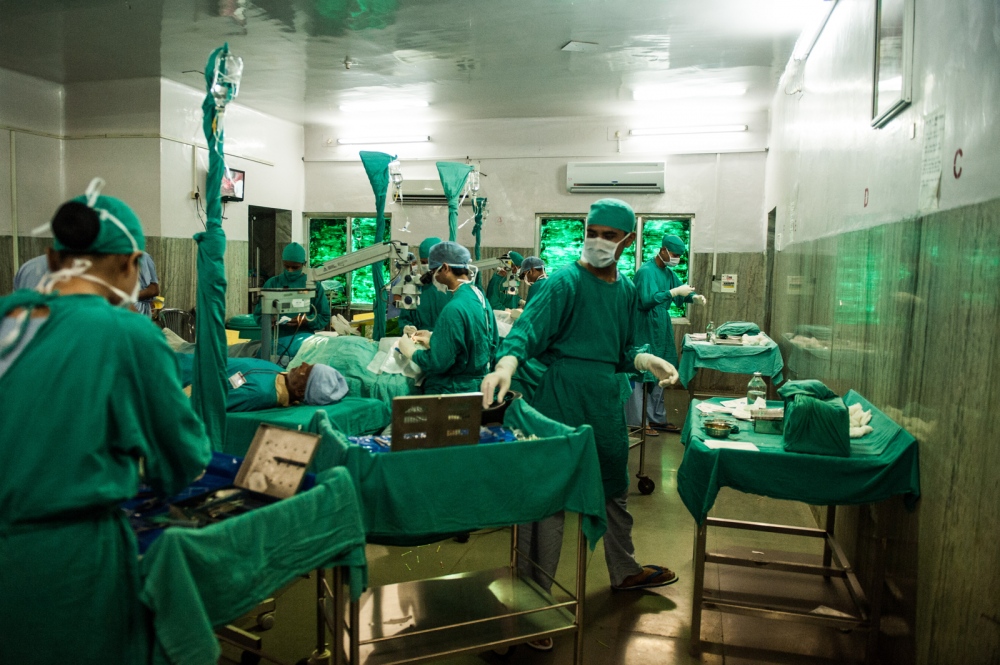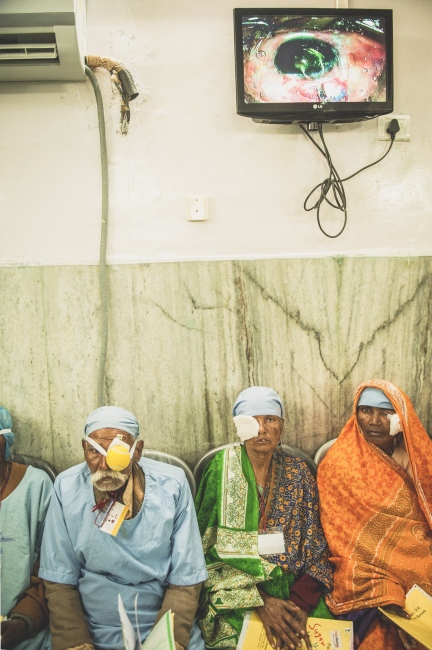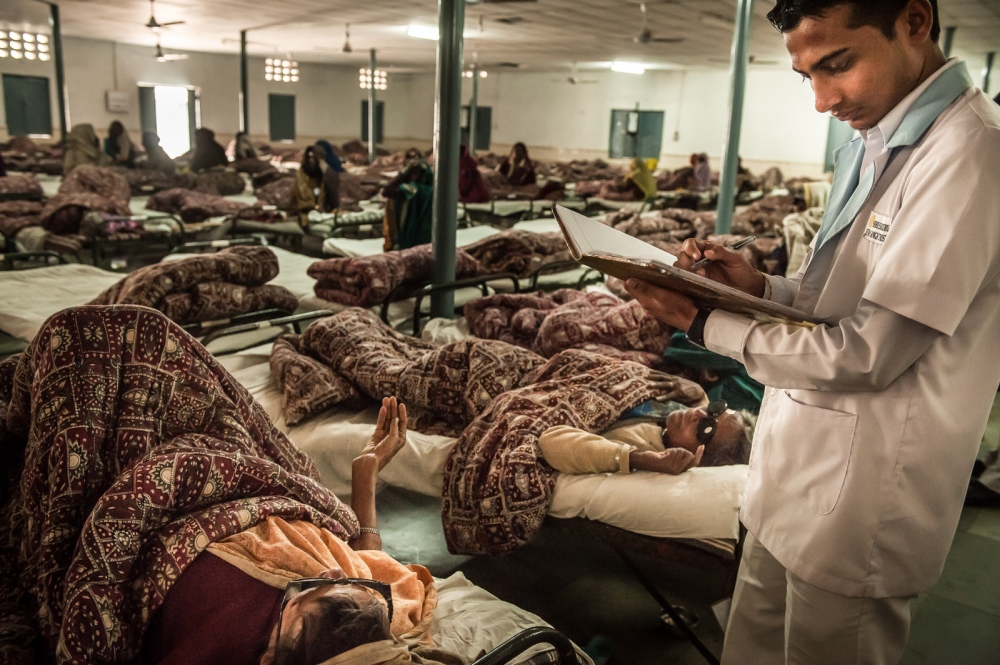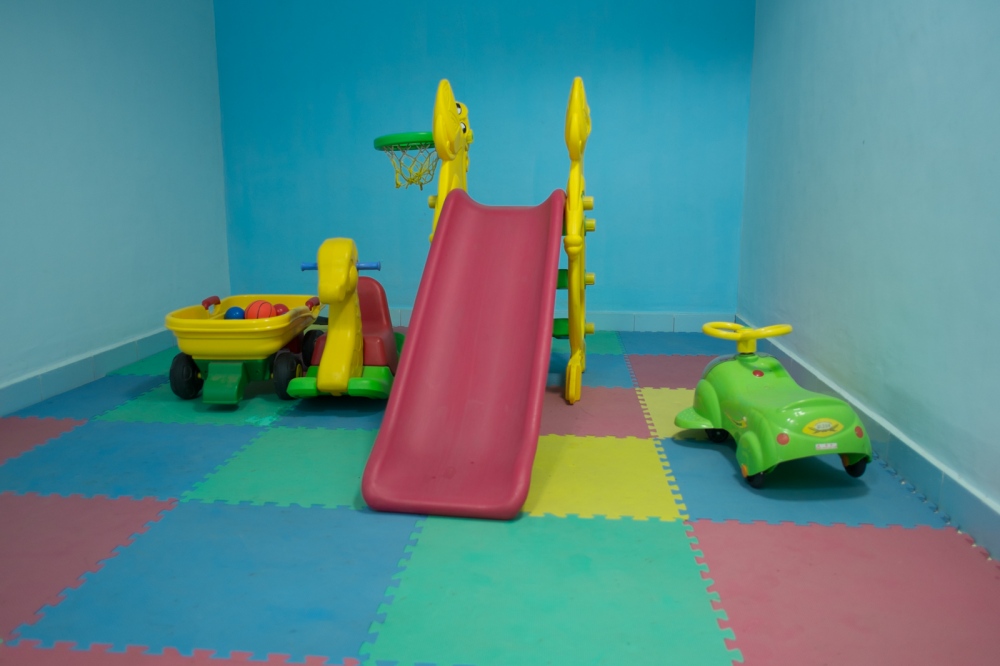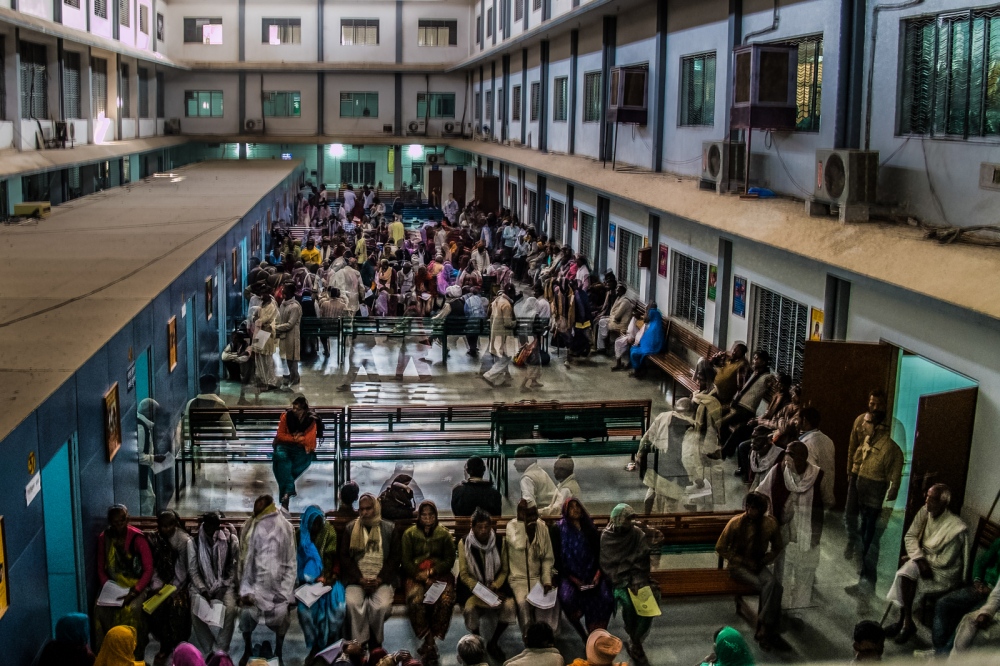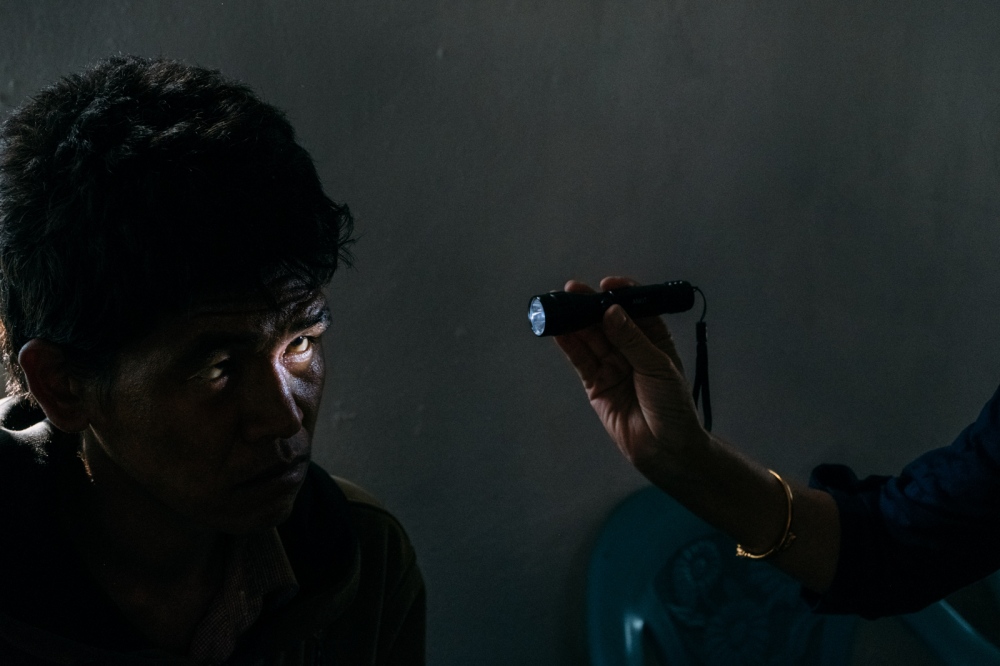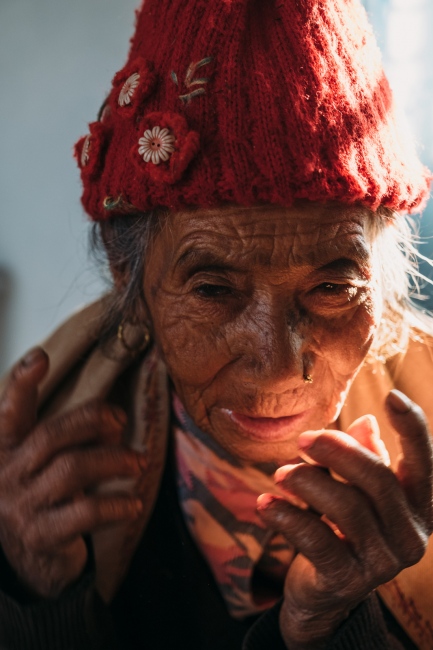Light in the Darkness illuminates the injustice that two-thirds of people living with blindness and visual impairment are women and girls in developing countries.
As a female who has extremely impaired sight without the aid of contacts and glasses, I understand the impact of good vision and the importance of telling these stories with truth and integrity. Working with the Seva Foundation has allowed me to educate communities around the world about the global issue of blindness and the gender disparity in eye care and how they can help end this crisis. Vision is admittedly something I've taken for granted. Living in a first world country and having decent healthcare I've been able to wear glasses since the age of four. When I was old enough I purchased contacts and have wonderful vision with them. Working on this project convinced me to spend some time without the aid of either. It was crippling. Going into mountain villages and remote areas and seeing what many individuals deal with on a daily basis made my heart hurt. Poor vision is something that cripples the mightiest of souls.
Globally, 39 million people are blind and 246 million more are visually impaired. Eighty percent of these people can be treated with basic eye care or a simple surgery, giving 228 million people their sight back. In developing countries, women and girls are far less likely to have access to eye care services because of barriers like lack of education, financial resources and limited decision-making power. These barriers mean women and girls are disproportionately afflicted with poor vision; they make up a staggering two-thirds of people living with blindness and visual impairment. With good vision comes both individual and economic gain. Sight restoration provides a gateway to becoming contributing members of society and leaving the cycle of poverty. Additionally, restored sight transforms many lives, both allowing a blind or visually impaired person to regain independence and releasing their family members from the burden of caretaking. By increasing awareness about the importance and accessibility of eye care, individuals can be empowered to take responsibility for their health and lives and can work together to build healthy communities.

